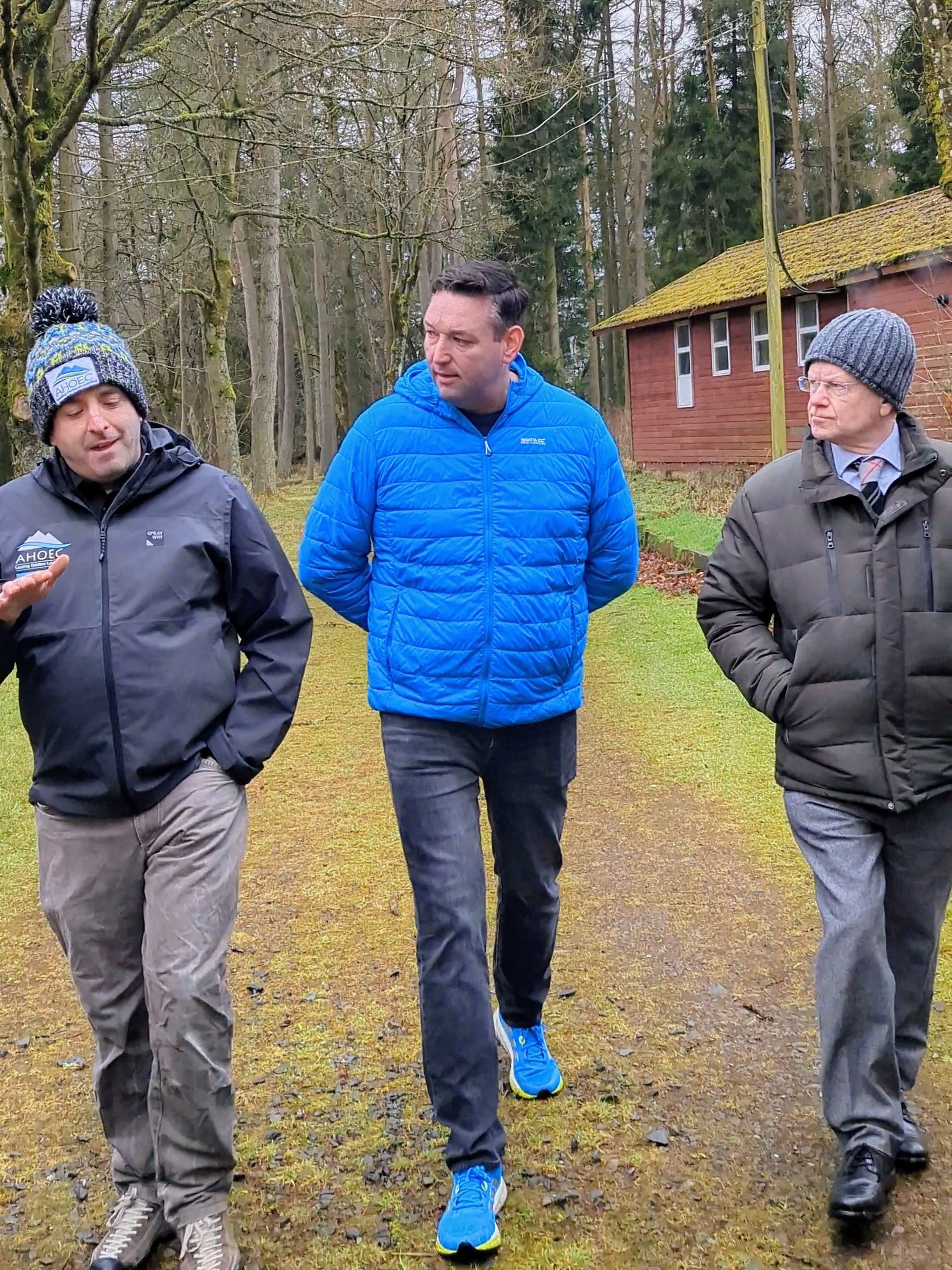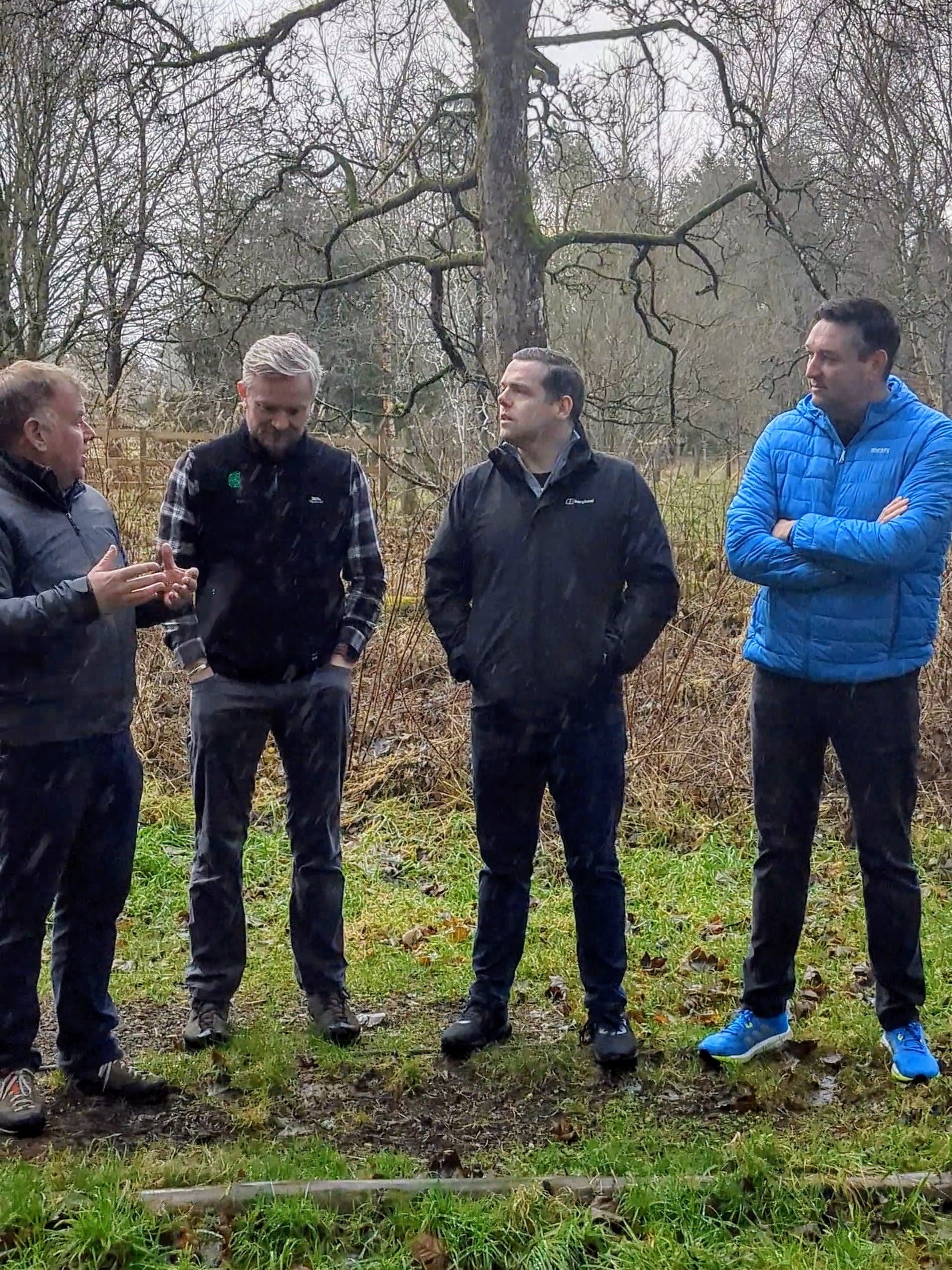Education, Children and Young People Committee
Annual report of the Education, Children and Young People Committee 2024-2025
Introduction
This annual report covers the work of the Education, Children and Young People Committee during the Parliamentary year from 13 May 2024 to 12 May 2025.
Membership Changes
The following changes to the Committees membership during the course of the last parliamentary year-
Ben MacPherson left the committee on the 18 June 2024 and was replaced by John Mason
Ruth Maguire left the committee on the 18 June 2024 and was replaced by George Adam
Michelle Thomson left the committee on the 18 June 2024 and was replaced by Evelyn Tweed
Sue Webber left the committee on the 10 October 2024 and was replaced by Douglas Ross
Liam Kerr left the committee on the 10 October 2024 and was replaced by Miles Briggs
Stephanie Callaghan left the committee on the 6 November 2024 and was replaced by Jackie Dunbar
Evelyn Tweed left the committee on the 21 January 2025 and was replaced by Keith Brown
Keith Brown left the committee on the 2 April 2025 and was replaced by Joe FitzPatrick
Meetings
The Committee met a total of 35 times during the reporting period. Two of these meetings were held entirely in private and 33 meetings included private agenda items.
The reasons for taking business in private included:
Consideration of the Committee's work programme
Consideration of draft reports and
Consideration of evidence heard during meetings.
In addition, the Committee held a number of informal, private engagement sessions. These are reflected throughout this report.
Bills
Scottish Languages Bill
The Scottish Languages Bill was referred to the Committee for Stage 1 scrutiny. The Bill gives the Gaelic and Scots languages official status in Scotland and makes changes to the support for the Gaelic and Scots languages in Scotland, including changes in relation to Gaelic and Scots education.
The Committee held Stage 2 proceedings on 11 December 2024.
Education (Scotland) Bill
The Education (Scotland) Bill was referred to the Committee for Stage 1 scrutiny. This Bill establishes a new body called Qualifications Scotland. It also creates a new office, His Majesty's Chief Inspector of Education in Scotland.
The Committee took oral evidence over a number of meetings in September and October 2024. The Committee published its Stage 1 report on 8 December 2024.
Schools (Residential Outdoor Education) (Scotland) Bill
The Schools (Residential Outdoor Education) (Scotland) Bill is a member's bill, which was referred to the Committee for Stage 1. The Bill will establish that all pupils in state and grant-aided schools will have the chance to experience at least four nights and five days of residential outdoor education during their school career. The Committee took evidence over a number of meetings in November 2024 and December 2024 and published its Stage 1 report on 4 February 2025. The Bill passed at Stage 1 on 27 March 2025.


Tertiary Education and Training (Funding and Governance) (Scotland) Bill
The Tertiary Education and Training (Funding and Governance) (Scotland) Bill was referred to the Committee at Stage 1. The Bill changes the way that funding is provided for post-school education and skills training.
The Committee issued a call for views on the provisions of the Bill, which ran from 28 February 2025 until Friday 11 April 2025 and began taking oral evidence on 7 May.
Subordinate Legislation
The Committee considered 22 Scottish Statutory Instruments (SSIs)—
8 SSIs subject to the affirmative procedure; and
14 SSIs subject to the negative procedure.
Inquiries
The Promise
Throughout this session of Parliament, the Committee has been responsible for scrutinising the ways in which the Scottish Government, and others, are working to implement the Promise, which sets out how the findings of the Independent Care Review should be implemented.
In November 2023 and March 2024, the Committee heard concerns about social work recruitment and retention and how this was impacting care experienced children and young people. As a result, the Committee agreed to hold sessions on the Promise focussing on workforce issues, whole family wellbeing and voice.
The Committee held a session with stakeholders, focussing on workforce issues, on 4 December 2024; a session with practitioners focussed on whole family wellbeing on 15 January 2025; and an informal session with care experienced young people on voice on 24 March 2025.
Pre-Budget Scrutiny (2025 - 2026)
The Committee held pre-budget scrutiny oral evidence sessions during June and September 2024. The Committee focussed on college and university funding, looking at the current funding settlement and considering the sustainability of funding in the years ahead, taking into account the impact of tightening public spending and potential upcoming reforms.
The Committee wrote to the Minister for Higher and Further Education; and Minister for Veterans with its conclusions on 9 October 2024.
Following the publication of the Budget in December 2024, the Committee took evidence from the Cabinet Secretary for Education and Skills and the Minister for Higher and Further Education; and Minister for Veterans on 8 January 2025.
Widening Access to higher education
Widening access aims to make higher education more accessible to people from under-represented groups.
Universities are currently working toward a target to widen access. By 2030, students from the 20% most deprived backgrounds (SIMD 20) should represent 20% of full-time, first-degree entrants to higher education. The next interim target is for 18% of full-time, first-degree university entrants to be from SIMD 20 backgrounds by 2026.
The Committee undertook a short inquiry into progress on widening access to higher education, taking evidence at meetings on 26 February 2025 and 5 March 2025. The Committee published its report on 15 May 2025.
Other evidence sessions
Throughout the year, the Committee held focussed evidence sessions on a range of issues including:
The Committee also took evidence from the Children and Young People's Commissioner for Scotland along with colleagues on the progress that has been made on the Commissioner's strategic plan 2024-28, as part of ongoing scrutiny of the work of the Commissioner's office.
Equalities and Engagement
The Committee is keen to ensure that it hears from a diverse range of people when taking evidence. It therefore asks organisations to consider this when identifying people to speak to the Committee.
The Committee is eager to create opportunities to hear from those working on the ground in education and with young people, for instance practitioners and teachers.
As part of its evidence gathering on the Schools (Residential Outdoor Education) (Scotland) Bill, the Committee heard from teachers about the provisions in the Bill. For its work on The Promise, the Committee heard directly from practitioners working for local authorities and third sector organisations about whole family wellbeing and early intervention projects that aim to keep children and young people with their families.
The Committee wants to hear from young people, and works with young people and key organisations to develop sessions designed to make the young people as comfortable as possible, so that they can fully participate and share their evidence.
In addition to the session with Members of the Scottish Youth Parliament, which took place as part of a formal Committee meeting, the Committee also held informal sessions. In such sessions, the Committee heard directly from care experienced young people as part of its work on The Promise. The Committee also heard from pupils, students and practitioners from a range of backgrounds in relation to its inquiry on widening access to higher education.